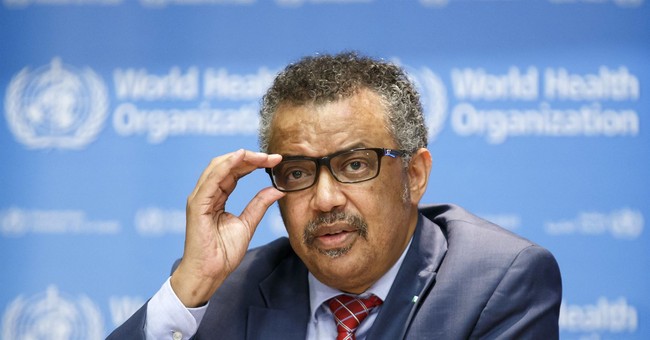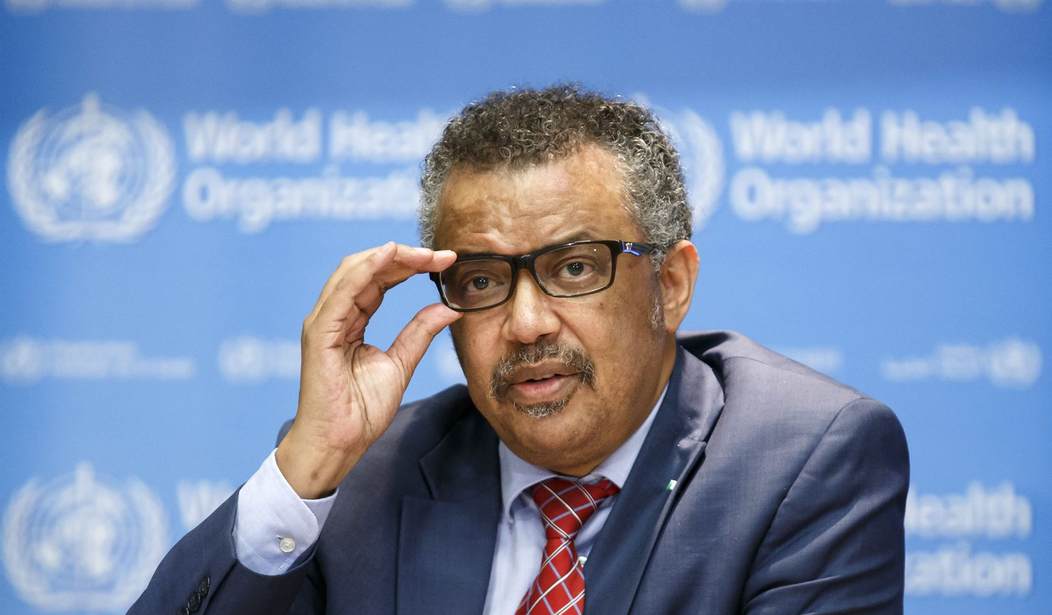
After months of promoting lockdowns as the panacea for the coronavirus pandemic, the World Health Organization (WHO) now states that “We in the World Health Organization do not advocate lockdowns as the primary means of control of this virus.”
In a video interview with The Spectator, a British magazine, David Nabarro, WHO Special Envoy for COVID-19, articulated several reasons why draconian lockdowns are doing more harm than good.
According to Nabarro, “The only time we believe a lockdown is justified is to buy you time to reorganize, regroup, rebalance your resources, protect your health workers who are exhausted, but by and large, we’d rather not do it.”
Obviously, it would have been preferable if WHO had expressed this position months ago, but it is better late than never.
Since the outbreak of the pandemic, scores of nations have implemented lockdowns based on WHO guidance, which has unleashed a tidal wave of unintended consequences.
First and foremost, the worldwide lockdowns have had a monumentally negative economic impact. As Nabarro put it, “Lockdowns just have one consequence that you must never, ever belittle, and that is making poor people an awful lot poorer.”
The lockdowns have had an especially deleterious effect on the most vulnerable. “Look what’s happened to smallholder farmers all over the world. Look what’s happening to poverty levels. It seems that we may well have a doubling of world poverty by next year. We may well have at least a doubling of child malnutrition,” said Nabarro.
Nabarro is right. Around the world, millions have lost their livelihoods due to the ongoing lockdowns. Several industries are on life-support. “Just look at what’s happened to the tourism industry in the Caribbean, for example, or in the Pacific because people aren’t taking their holidays,” said Nabarro.
Aside from the economic devastation, lockdowns have also led to a major uptick in mental health problems.
According to a report from the Centers for Disease Control and Prevention (CDC), “The coronavirus disease 2019 (COVID-19) pandemic has been associated with mental health challenges related to the morbidity and mortality caused by the disease and to mitigation activities, including the impact of physical distancing and stay-at-home orders.”
As the CDC report notes, “Symptoms of anxiety disorder and depressive disorder increased considerably in the United States during April–June of 2020, compared with the same period in 2019.”
The report also notes that those who have seriously contemplated suicide over the past six months has increased to levels never seen before. Astonishingly, 25.5 percent of Americans aged 18 to 24 have seriously considered suicide since the pandemic began and lockdowns were instituted.
Although lockdowns are not solely to blame for the uptick in mental health disorders, one cannot discount that the social isolation they have led to is a main driver of this sad state of affairs.
The lockdowns have also led to several other societal ills. As numerous reports have documented, domestic violence rates are higher than ever. Early on, United Nations Secretary-General António Guterres echoed this, “Over the past weeks, as the economic and social pressures and fear have grown, we have seen a horrifying surge in domestic violence.”
The surge in violence due to lockdowns has also led to an increase in child abuse. Camille Cooper, vice president of the Rape, Abuse and Incest National Network, told National Public Radio that “a lot of the kids that were coming to the hotline were feeling pretty vulnerable and traumatized. And it was a direct result of COVID-19, because they were quarantined with their abuser. The abuser was now abusing them on a daily basis.”
The lockdowns are also inhibiting children’s development across the spectrum. As the CDC reports, “the harms attributed to closed schools on the social, emotional, and behavioral health, economic well-being, and academic achievement of children, in both the short- and long-term, are well-known and significant. Further, the lack of in-person educational options disproportionately harms low-income and minority children and those living with disabilities.”
For many months, experts have advocated lockdowns as the one and only way to prevent the spread of COVID-19. The fact is that the lockdowns have done far more harm than good.
Finally, the experts are recognizing this and imploring officials to change course.
As Nabarro put it, “And so, we really do appeal to all world leaders: stop using lockdown as your primary control method. Develop better systems for doing it. Work together and learn from each other.”
Even more telling, WHO Director-General Tedros Ghebreyesus, who has been one of the leading advocates of lockdowns, stated in mid-July, “We need to reach a sustainable situation where we have adequate control of this virus without shutting down our lives entirely, or lurching from lockdown to lockdown — which has a hugely detrimental impact on societies.”
It has been three months since the director-general’s admission. How much longer will it be until our political leaders relent, reverse course, and admit that the lockdowns were a terrible mistake?
Chris Talgo ([email protected]) is an editor at The Heartland Institute.












Join the conversation as a VIP Member